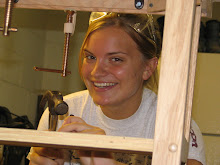At work I get the privilege to work within the health care system, learning about how it functions on the personal, local and national level, while also getting to see where the system fails. When this system fails, I am grateful there are people like the ones involved in our organization who take on the personal responsibility of caring for those who may fall through the cracks. Last week I experienced a perfect example of this.
As I explained in my last blog entry, our clinic has a state contract to administer the two part physical required for all refugees upon entrance into Nashville. Resettlement agencies in Nashville bring their clients to our clinic before and after their physicals as well, and because we wanted to provide continuity of care for these refugees, we have begun accepting the state insurance given to refugees. All refugees being resettled in the state of Tennessee are covered for 8 months by HCC medical insurance, except for children and pregnant women who are granted TennCare upon application. This confusing system means that in addition to serving the uninsured, we serve all refugees for entrance physicals, refugees on HCC insurance and those who later become uninsured once they are dropped off HCC coverage after 8 months. It is confusing to say the least.
Last week a young Burmese couple who were expecting their first child were sent to Siloam by their caseworker. They had arrived in Nashville just a few days before, but originally had been settled in Houston, TX. Since they had arrived in Texas, they were granted the state run insurance there but upon arriving in Tennessee, the husband would receive HCC coverage while the wife would not since as a pregnant woman, she was eligible for TennCare. The catch is that to apply for TennCare, the woman needed a proof of pregnancy. However since we are not a walk in clinic (we only see established patients, and because of her Tenncare eligibility, she would never be one of our patients) according to the system, we would send her somewhere else. I spent over an hour with this sweet young couple. I got in touch with their caseworker to clarify the situation. I called other clinics (by this I mean sat on hold for extended periods of time and navigated endless automated menus) to see if they would take this couple as a work in and how much they would have to pay out of pocket for a pregnancy test. I talked with my supervisors to see if there was any way we could just see them at our clinic. In the end we preferred to find a way to see them at our clinic instead of sending them all over Nashville to get a signature verifying something that one could obviously see by looking at her belly.
Our clinic has a heart for the refugee population in Nashville and although we are working within our complicated, oftentimes broken health insurance system, it is our heart that guides us. When that refugee couple left the clinic that day they made a special effort to stop and thank me for my help. Having that moment to look back on reassures me that while I am trying to work to understand and hopefully someday improve health insurance policy or refugee intake systems, it is the call from God to care for one another that is inspiring these efforts in my life.
